Cancer Definition
যদি কোন টিসুতে কোষের এমন বিভাজন ঘটে যেখানে বিভাজিত কোষ স্বাভাবিক বৈশিষ্টের না হয়ে, এমন অস্বাভাবিক বৈশিষ্টের হয়, যা অন্য টিসুতে প্রবেশ করতে পারে এবং টিসুর কোষ গুলিকে ধ্বংস করতে পারে, এই রকম টিসুকে ক্যানসারাস টিসু বা ক্যানসারাস টিউমার, সেলকে ক্যানসারাস সেল, বিভাজনকে ক্যানসারাস বিভাজন বলে এবং এই পুরো বিষয়টিকে ক্যানসার বলে ।
If a tissue divides in such a way that the dividing cells have abnormal characteristics instead of normal ones, which can invade other tissues and destroy the cells of the tissue such tissue is called cancerous tissue or cancerous tumor, cell is called cancerous cell, division is called cancerous division and this whole thing is called cancer.
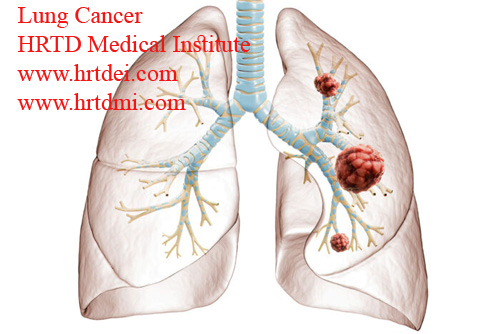
Define Tumor. Classify Tumor.
টিসুর অস্বাভাবিক বৃদ্ধিকে টিউমার বলে । টিউমারকে সাধারনত তিন ভাগে ভাগ করা হয় ।
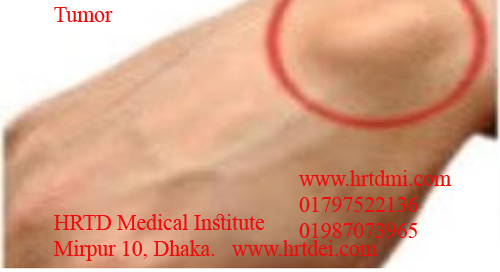
Benign Tumor (Non Cancerous Tumor): Tumors in which the mother cells and daughter cells are similar enough and do not give rise to daughter cells that can invade other tissues and destroy the tissue cells, such tumors are called benign tumors or non cancerous tumors.
মেলিগনেন্ট টিউমার (ক্যানসারাস টিউমার )ঃ যে সকল টিউমারে এমন সন্তান কোষের উদ্ভব হয় না যা অন্য টিসুতে প্রবেশ করতে পারে এবং টিসুর কোষ গুলিকে ধ্বংস করতে পারে, এই রকম টিউমারকে মেলিগনেন্ট টিউমার বা ক্যানসারাস টিউমার বলে ।
Malignant Tumor (Cancer Tumor): Tumors that do not produce daughter cells that can invade other tissues and destroy tissue cells, such tumors are called malignant tumors or cancerous tumors.
প্রিমেলিগনেন্ট টিউমার (প্রিক্যানসারাস টিউমার )ঃ যে সকল টিউমারে এখনো ক্যানসার কোষের উদ্ভব হয় নাই কিন্তু অদুর ভবিষ্যতে হওয়ার সম্ভাবনা আছে, এই রকম টিউমারকে প্রিমেলিগনেন্ট টিউমার বা প্রিক্যানসারাস টিউমার বলে।
Premalignant Tumor (Precancerous Tumor): Tumors that have not yet developed cancer cells but are likely to develop in the near future, such tumors are called premalignant tumors or precancerous tumors.
বিনাইন টিউমার, প্রিমেলিগনেন্ট টিউমার, এবং মেলিগনেন্ট টিউমার ।
বিনাইন টিউমার (নন ক্যানসারাস টিউমার )ঃ যে সকল টিউমারে মাতৃকোষ এবং সন্তান কোষের মধ্যে যথেষ্ট মিল থাকে এবং এমন সন্তান কোষের উদ্ভব হয় না যা অন্য টিসুতে প্রবেশ করতে পারে এবং টিসুর কোষ গুলিকে ধ্বংস করতে পারে, এই রকম টিউমারকে বিনাইন টিউমার বা নন ক্যানসারাস টিউমার বলে ।
Clinical feature of Cancer
- Fatigue (Continuous tiredness)
- A small solid mass under the skin
- A small solid mass in any tissue
- Weight gain or weight loss
- Changes of skin color such as yellowing, darkening or redness of the skin
- Sores that would not heal
- Changes of bowel habit or bladder habits
- Persistent cough or trouble breathing
- Difficulty swallowing
- Hoarseness
- Persistent indigestion or discomfort after eating
- Persistent muscle pain or joint pain
- Persistent fever or night sweats
- Unexplained bleeding or bruising
ক্যান্সারের ক্লিনিক্যাল বৈশিষ্ট্য
- ক্লান্তি (ক্রমাগত ক্লান্তি)
- ত্বকের নিচে একটি ছোট কঠিন পদার্থ
- যেকোনো টিস্যুতে একটি ছোট কঠিন পদার্থ
- ওজন বৃদ্ধি বা ওজন হ্রাস
- ত্বকের রঙের পরিবর্তন যেমন হলুদ হওয়া, কালো হয়ে যাওয়া বা লাল হয়ে যাওয়া
- যে ঘাগুলি নিরাময় হয় না
- অন্ত্রের অভ্যাস বা মূত্রাশয়ের অভ্যাসের পরিবর্তন
- ক্রমাগত কাশি বা শ্বাসকষ্ট
- গিলতে অসুবিধা
- ঘন ঘন হওয়া
- খাওয়ার পরে ক্রমাগত বদহজম বা অস্বস্তি
- ক্রমাগত পেশী ব্যথা বা জয়েন্টে ব্যথা
- ক্রমাগত জ্বর বা রাতের ঘাম
- অব্যক্ত রক্তপাত বা ক্ষত
Causes of Cancer
- Genetics
- Cancer syndromes
- Physical & Chemical agents
- Smoking
- Materials
- Lifestyle
- Alcohol
- Diet
- Hormones
- Infection & Inflammation
- Viruses
- Bacteria
- Parasites
- Radiation
- Non Ionizing radiation
- Rare causes
- Organ Transplantation
Risk factors of Cancer
- Family History
- Smoking
- Environment factors
- Malnutrition
- Hormone therapy
- Radiation exposure
Treatment of Cancer
- Surgery
- Chemotherapy
- Radiation therapy
- Immunotherapy
- Targeted therapy
- Hormone therapy
- Bone marrow transplant
Types of Cancer
The most common types of cancer in male are
(1) Prostate Cancer
(2) Colorectal Cancer Or Bowel Cancer
(3) Stomach Cancer
(4) Liver Cancer
The most common types of cancer in female are
(1) Brest Cancer
(2) Colorectal Cancer Or Bowel Cancer
(3) Lung Cancer
(4) Cervical Cancer
(5) Thyroid Cancer
What are the causes of prostate cancer?
The exact cause is unknown. But many factors can increase the risk of developing it.

Risk factors
- AgeThe risk of prostate cancer increases with age, and most cases are diagnosed in men over 50.
- Family historyHaving a brother or father who developed prostate cancer before age 60 increases the risk.
- ObesityBeing overweight or obese may increase the risk of developing more aggressive prostate cancer.
- DietSome studies suggest that a diet high in dairy products may increase the risk of prostate cancer.
- Ethnicity Prostate cancer is more common in Black men than in White men.
- Environmental exposuresExposure to certain chemicals, such as arsenic, Agent Orange, or some firefighting chemicals, may increase the risk of prostate cancer.
- Inherited gene changes Certain gene changes, such as variants of the BRCA1 or BRCA2 gene, can increase prostate cancer risk.
Prevention of Prostate Cancer
To lower the risk of developing prostate cancer, you can:
- Maintain a healthy weight
- Eat a healthy diet
- Avoid smoking and heavy use of alcohol
- Exercise regularly
- Get enough rest
- Maintain a screening regimen for prostate cancer as you age
Treatment of Prostate Cancer
Treatment for prostate cancer depends on the cancer’s stage and risk, and the patient’s overall health. Treatments include surgery, radiation therapy, hormone therapy, chemotherapy, and immunotherapy.
Treatment options
- Surgery: A prostatectomy removes the prostate, and sometimes the seminal vesicles.
- Radiation therapy: External radiation therapy or brachytherapy can be used.
- Hormone therapy: Blocks hormones that help prostate cancer cells grow.
- Chemotherapy: Destroys cancer cells by interfering with how they multiply.
- Immunotherapy: A treatment that uses the body’s immune system to fight cancer.
- Bisphosphonates: Medicines that reduce bone pain and bone loss.
Other treatments targeted therapy, ablation therapy with heat or cold, and radiopharmaceutical therapy.
Monitoring
- Many localized prostate cancers grow so slowly that they don’t cause problems and don’t affect life expectancy.
- Active surveillance involves regular checkups to monitor the cancer.
Breast Cancer in Women
Breast cancer is cancer that’s found in the breasts. It’s the most common types of cancer in woman in the U.K Anyone can get breast cancer.

Symptoms of breast cancer in women
- A lump or swelling in breast, chest or armpit
- A change in the skin breast, such as dimpling or redness
- A change in size or shape of one or both breasts.
- Nipple discharge.
- Breast pain
Causes of breast cancer
- Age
- Menstruating of a younger age
- Having menopause at a later age
- Having a late childbirth
- Family history of breast cancer
Treatment of Breast Cancer
Breast cancer treatment typically involves a combination of therapies depending on the stage of the cancer, including surgery, radiation therapy, chemotherapy, hormone therapy, targeted therapy, and immunotherapy; with surgery often being the primary treatment method to remove the cancerous tissue, while other therapies may be used to prevent the cancer from spreading or recurring.
Key points about breast cancer treatment:
- Surgery:This is the primary treatment, which can include a lumpectomy (removing only the tumor and a small margin of tissue) or a mastectomy (removing the entire breast).
- Radiation therapy:Used after surgery to target any remaining cancer cells in the breast and surrounding area.
- Chemotherapy:Systemic treatment using drugs to kill cancer cells throughout the body, often used when the cancer has spread to lymph nodes.
- Hormone therapy:Targets hormone-receptor positive breast cancers by blocking the hormones that fuel their growth.
- Targeted therapy:Uses drugs that specifically target molecular abnormalities within cancer cells.
- Immunotherapy:Stimulates the patient’s immune system to recognize and attack cancer cells.
Factors influencing treatment plan:
- Stage of cancer: How far the cancer has spread
- Type of breast cancer: Different subtypes of breast cancer respond differently to treatments
- Patient’s overall health
Lungs Cancer
Lungs cancer is the abnormal growth of tissues in the lungs. Most lung cancers begin in the cells that line these tube.

Types of lung cancer
Lungs cancers are two types-
- Non- small cell lung cancer is the most common type of lung cancer.
- Small cell lung cancer is less common parts of the body through the blood.
Symptoms of lung cancer
- A cough that gets worse.
- Constant chest pain
- Coughing up blood
- Hoarse voice
- Frequent lung infections
- Unexplained weight loss
Causes of lung cancer
- Tobacco smoking from
- cigarettes,
- pipes
- cigars
Risk factors of lung cancer
- Most people are older than 65 Y when they are diagnosed with lung cancer
- Have contact with certain substances such as radon, asbestos, arsenic, chromium etc
- Family member history of lung cancer.
Treatment of Lung Cancer
Lung cancer treatment depends on the type and stage of the cancer, as well as the patient’s overall health. Treatments include surgery, chemotherapy, radiation therapy, immunotherapy, and targeted therapy.
Surgery
- Open surgery: A traditional procedure that involves a large incision between the ribs
- Minimally invasive surgery: A procedure that involves smaller incisions and a shorter recovery time
Chemotherapy
- A series of treatments that use strong medicines to shrink or kill cancer cells
- Can be given as pills, through a vein, or both
- Can be used before or after surgery
Radiation therapy
- Uses high-energy rays to kill cancer cells
- Can be used to relieve symptoms like pain
- Can be used to reduce the risk of the cancer spreading to the brain
Targeted therapy
- Uses drugs to block the growth and spread of cancer cells
Other treatments Immunotherapy, Laser therapy, Endoscopic stent placement, and Cryotherapy.
Combination treatments
- More than one type of treatment may be used
- For example, chemotherapy and radiotherapy may be used together
Follow-up care
- Patients may need follow-up care after treatment
Bowel cancer (Colorectal Cancer) signs and symptoms
Symptoms of bowel cancer include:
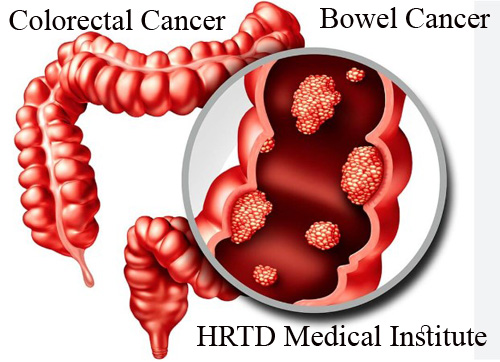
- change in bowel habit including diarrhoea, constipation or the feeling of incomplete emptying
- a change in the appearance or consistency of bowel movements such as thin bowel stools
- blood in the stools
- abdominal pain, bloating or cramping
- anal or rectal pain
- a lump in the anus or rectum
- weight loss
- unexplained fatigue
- tiredness and/or anaemia (pale complexion, weakness and breathlessness)
- blood in the urine or passing urine frequently or during the night, change in urine colour – dark, rusty or brown
Causes of bowel cancer (Colorectal Cancer)
Some factors that increase your risk of bowel cancer include:
- a diet low in fibre
- high red meat consumption, especially processed meats
- being overweight or obese
- alcohol consumption
- smoking tobacco
- inherited genetic risk and family history
- inflammatory bowel disease such as Crohn’s disease
- polyps
- having a previous diagnosis of bowel cancer
Treatment of Bowel Cancer
Bowel cancer can be treated with surgery, chemotherapy, radiotherapy, targeted therapy, and immunotherapy.
Surgery
- The main treatment for early and locally advanced bowel cancer
- The cancerous part of the bowel is removed
- There are different types of surgery, including open surgery and keyhole surgery
Chemotherapy
- Uses drugs to kill cancer cells
- Can also reduce the risk of cancer returning
- The type of drug depends on factors like your risk of the cancer coming back and other medical conditions
Radiotherapy
- Uses high energy rays to kill cancer cells
- Can be given before surgery to shrink the tumor or after surgery to kill any remaining cancer cells
Stomach cancer signs and symptoms
- a painful or burning sensation in the abdomen
- heartburn or indigestion (dyspepsia)
- a sense of fullness, even after a small meal
- nausea and/or vomiting
- loss of appetite and/or weight loss
- swelling of the abdomen
- unexplained tiredness or weakness
- blood in vomit
- black-coloured faeces
Causes of stomach cancer
Some factors that can increase your risk of stomach cancer include:
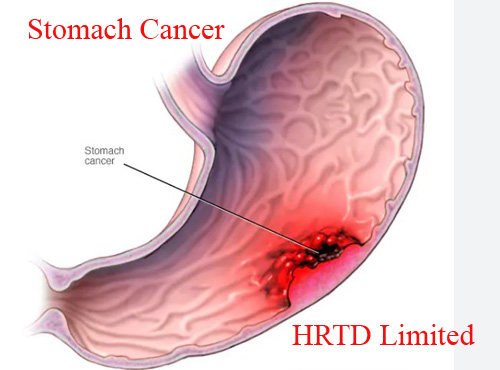
- smoking tobacco
- being over 60
- infection with the bacteria Helicobacter pylori
- a diet high in smoked, pickled and salted foods and low in fresh fruit and vegetables
- alcohol consumption
- being overweight or obese
- pernicious anaemia (low red blood cells)
- chronic gastritis (inflammation of the stomach)
- a family history of stomach cancer
- partial gastrectomy for ulcer disease (after about 20 years)
- having an inherited genetic condition like familial adenomatous polyposis (FAP), Lynch syndrome, hereditary diffuse gastric cancer (HDGC), or gastric adenocarcinoma and proximal polyposis of the stomach (GAPPS).
Diagnosis of stomach cancer
If your doctor thinks you may have stomach cancer, you will be referred for further tests. The main test is an endoscopy (also known as a gastroscopy). The doctor will use a thin, flexible tube with a camera (endoscope), which passes into the mouth, down the throat and oesophagus into the stomach in order to look at the digestive tract.
If any suspicious-looking areas are detected, a small amount of tissue from the stomach lining may be removed (biopsy) and examined under a microscope. Less commonly used is an endoscopic ultrasound where the endoscope has an ultrasound probe at the end.
Treatment of Stomach Cancer
Stomach cancer is treated with surgery, chemotherapy, radiation therapy, or a combination of these treatment.
Surgery
- The most common treatment for stomach cancer
- Involves removing part or all of the stomach, along with lymph nodes and fatty tissue
- The type of surgery depends on the cancer’s location
Chemotherapy
- May be given before surgery to shrink the tumor
- May be given after surgery to reduce the risk of the cancer returning
- Some chemotherapy drugs used to treat stomach cancer include capecitabine, cisplatin, docetaxel, fluorouracil, and oxaliplatin
Radiation therapy
- Uses high-energy particles to destroy cancer cells in the stomach
- External-beam radiation therapy is the most common type of radiation therapy used to treat stomach cancer
- Side effects include skin reactions, fatigue, and stomach problems
Immunotherapy
- A promising treatment option for stomach cancer, especially when other treatments have not been effective
- Immune checkpoint inhibitors, such as pembrolizumab and nivolumab, can help the body’s immune system fight cancer cells
Causes of Liver Cancer
Infections
- Hepatitis B and C viruses can cause chronic infections that lead to liver cancer
- Aflatoxins, a fungus that can grow on grains and nuts, can increase the risk of liver cancer
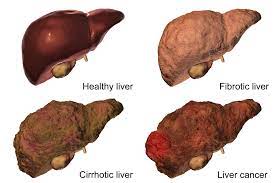
Chemical exposure
- Exposure to vinyl chloride, arsenic, and trichloroethylene may increase the risk of liver cancer
- Thorotrast, a chemical that was used in some x-ray tests, can increase the risk of liver cancer
Genetic disorders
- Hemochromatosis, a condition where the body stores too much iron, can increase the risk of liver cancer
- Alpha-1 antitrypsin deficiency, glycogen storage disease, and porphyria cutanea tarda are other genetic disorders that may increase the risk of liver cancer
Other risk factors Being overweight or obese, Smoking cigarettes, Drinking alcohol, Having diabetes, and Having nonalcoholic fatty liver disease.
Cirrhosis
- Cirrhosis, or scarring of the liver, is a common cause of liver cancer
How we can reduce the risk of developing liver cancer
- Avoid or cut down on alcohol
- Eat a healthy diet
- Exercise regularly
- Take steps to reduce your risk of becoming infected with hepatitis B and C
Treatment of Liver Cancer
Liver cancer can be treated with surgery, chemotherapy, ablation, targeted drugs, and radiation therapy. The goal of treatment is to extend life without compromising quality of life.
Surgery
- Partial hepatectomy: Surgery to remove the part of the liver with cancer
- Liver transplant: A treatment option for liver cancer
Ablation
- Radiofrequency ablation (RFA): Uses radio waves to heat and destroy cancer cells
- Microwave ablation (MWA): Uses microwaves to heat and destroy cancer cells
- Cryoablation: Surgery that freezes and kills cancer cells
Chemotherapy
- Transarterial chemoembolization (TACE): Chemotherapy directly into the liver and cutting off the blood supply to the tumor
Targeted drugs
- Atezolizumab: An immunotherapy drug that helps the body’s immune system fight cancer cells
- Bevacizumab: A targeted therapy drug
Radiation therapy
- Radioembolization: Tiny pellets of plastic or another material deliver radiation into the arteries that carry blood to the tumor
What are the causes of cervical cancer
The main cause of cervical cancer is infection with high- risk types of human papillomavirus (HPV). Other risk factors include smoking, a weakened immune system, and early sexual activity.

HPV
- HPV is a sexually transmitted infection (STI) that can be passed through skin-to-skin contact of the genital area.
- Most HPV infections go away on their own within a couple of years.
- However, if a high-risk HPV infection lasts for years, it can lead to cervical cancer.
- Two high-risk types of HPV, HPV 16 and HPV 18, cause 70% of cervical cancers.
Other risk factors
- Smoking
- A weakened immune system
- Early sexual activity
- Multiple sexual partners
- Taking the contraceptive pill for more than five years
- Not eating enough fruits and vegetables
Prevention of Cervical Cancer
You can lower your chances of getting cervical cancer by: Getting the HPV vaccine, Using condoms during sexual intercourse, Practicing sexual abstinence, and Getting regular cervical screenings.
Treatment of Cervical Cancer
Cervical cancer can be treated with surgery, chemotherapy, radiation therapy, targeted therapy, or immunotherapy. The treatment plan depends on the type and stage of the cancer.
Surgery
- Hysterectomy: Surgical removal of the uterus and cervix
- Cone biopsy: A minor surgery to remove a cone-shaped piece of tissue containing cancerous cells
- Radical trachelectomy: An operation that removes most of the cervix but leaves enough behind so that you might be able to become pregnant
Chemotherapy
- Special medicines that shrink or kill the cancer
- Drugs that can be pills you take or medicines given in your veins
- Side effects include nausea, fatigue, hair loss, increased risk of infections, or temporary or permanent menopause
Radiation therapy
- Use of high-energy rays (similar to x-rays) to kill the cancer
Immunotherapy
- Medicines that stimulate your immune system to recognize and destroy cancer cells more effectively
Targeted therapy sometimes used to treat cervical cancer.
Follow-up care
- Follow-up after treatment for cervical cancer varies
A gynecologic oncologist is a doctor who has been trained to treat gynecologic cancers, including cervical cancer.
Causes of Thyroid Cancer
The exact cause of thyroid cancer is unknown, but there are several risk factors that can increase our chances of developing it.
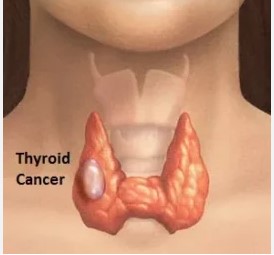
Risk factors
- Family history: Having a family history of thyroid cancer, especially medullary thyroid cancer
- Radiation exposure: Exposure to radiation from childhood cancer treatments, nuclear fallout, or power plant accidents
- Genetic syndromes: Having certain genetic syndromes, such as multiple endocrine neoplasia (MEN), familial adenomatous polyposis (FAP), or Cowden syndrome
- Thyroid conditions: Having a thyroid condition like an enlarged thyroid (goiter), thyroid nodules, or thyroiditis
- Weight: Being overweight or obese
- Iodine intake: Having too much or too little iodine in your diet
- Sex: Being female, as thyroid cancer is more common in women
Prevention of Thyroid Cancer
Lifestyle changes
Get enough sleep: Aim for 7-9 hours of sleep per night.
Eat a healthy diet: Eat more fruits, vegetables, whole grains, and fiber.
Maintain a healthy weight: Being overweight increases your risk of thyroid cancer.
Exercise regularly: Aim for 150 minutes of moderate exercise each week.
Avoid smoking and limit alcohol: Smoking and heavy alcohol consumption increase the risk of many cancers.
Avoid unnecessary radiation exposure: Limit exposure from X-rays and CT scans.
Practice stress management: Try yoga, meditation, or deep breathing.
Treatment of Thyroid Cancer
Treatment for thyroid cancer depends on the type and stage of the cancer. Treatments include surgery, radioactive iodine therapy, targeted therapy, and thyroid hormone therapy.
Surgery
- The most common treatment for thyroid nodules and tumors
- The surgeon may remove part or all of the thyroid
- If the cancer has spread to lymph nodes, the surgeon may remove those as well
Radioactive iodine therapy
- Used to treat any remaining thyroid cancer after surgery
- May also be used if the cancer comes back or spreads
Targeted therapy
- Used to stop or slow the growth of cancer
- Targets molecules or genes that cause cancer cells to survive, multiply, and spread
Thyroid hormone therapy
- Used after surgery if the surgeon removes the entire thyroid gland
- Most patients who have a lobectomy don’t need thyroid hormone therapy
Other treatments External radiation therapy, Chemotherapy, and Immunotherapy.
Follow-up care
- Follow-up tests may be needed
- A specialist care team can help create a treatment plan and manage side effects
 MATCDHAKA – Medical Assistant Training Centre in Dhaka Pharmacy, Veterinary, Dental, Nursing, Pathology, Physiotherapy and Homeopathy Training Institute in Dhaka
MATCDHAKA – Medical Assistant Training Centre in Dhaka Pharmacy, Veterinary, Dental, Nursing, Pathology, Physiotherapy and Homeopathy Training Institute in Dhaka



